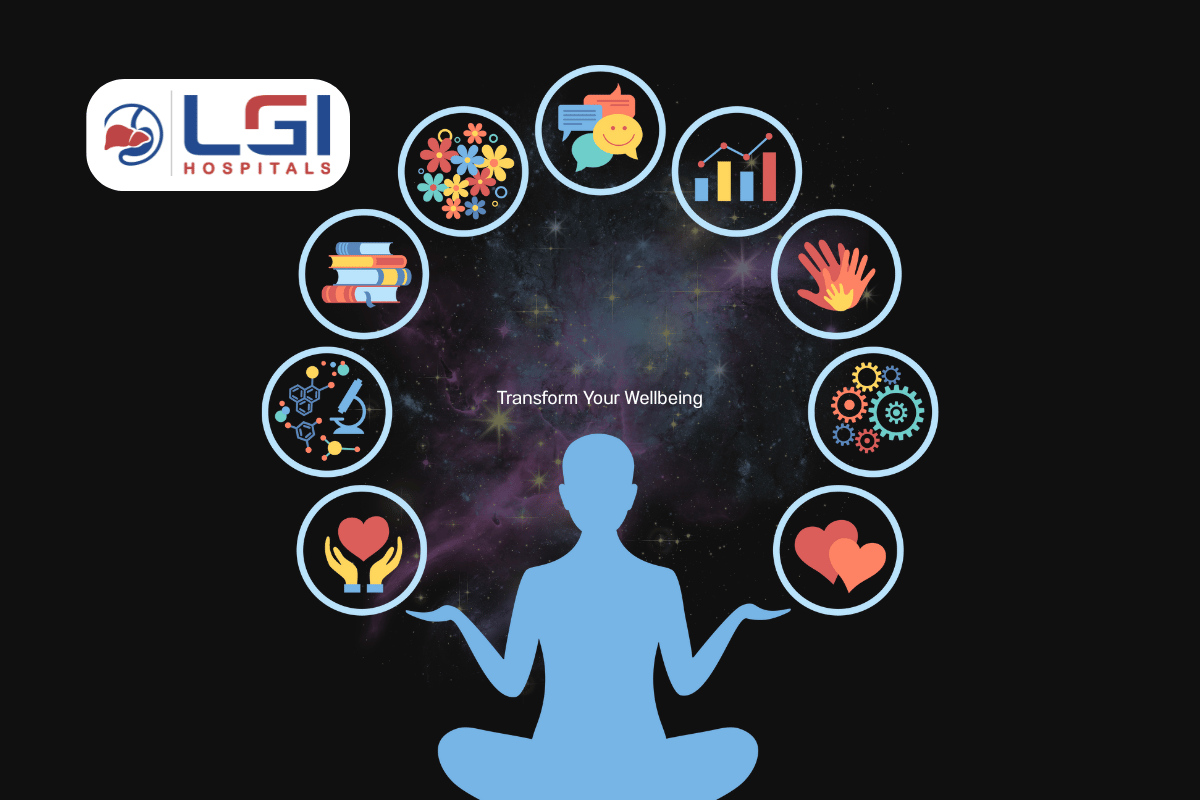Acquiring and sustaining a healthy lifestyle involves consistent, science-backed habits across diet, movement, rest, and mindset. In India’s fast-paced environment marked by desk-bound work, festival indulgences, and variable climates a tailored approach can bridge the gap between intent and impact. This guide offers Healthy Lifestyle Tips drawn from global recommendations and India-specific studies to help you thrive.
1. Balanced Nutrition: Fueling Your Body Right
A well-rounded diet provides essential nutrients for energy, immunity, and longevity. According to Mintel, 52% of Indians prioritized including all essential nutrients during the pandemic, and 50% chose foods with healthier ingredients like brown rice and organic produce.
1.1 The 80/20 Plant-First Rule
Aim for 80% of your plate to be plant-based vegetables, fruits, whole grains, legumes and 20% lean proteins (fish, poultry, dairy, pulses). This ratio ensures fiber, antioxidants, and micronutrients while moderating calorie-dense fats.
1.2 Smart Carbohydrates
Replace refined grains with whole alternatives: brown rice, millets (jowar, bajra, ragi), and whole-wheat roti. These release glucose slowly, stabilizing blood sugar and sustaining energy.
1.3 Healthy Fats Matter
Use traditional, stable oils: mustard, sesame, coconut for cooking; cold-pressed oils and ghee in moderation. These supply essential fatty acids and fat-soluble vitamins without trans fats.
1.4 Portion Control & Mindful Eating
- Follow the “hand-portion” method: a palm-sized protein, a cupped handful of carbs, two fists of vegetables per meal.
- Chew thoroughly and eat without distractions to recognize fullness signals.
2. Regular Physical Activity: Move Every Day
YouGov research shows 53% of Indians exercise regularly, while only 21% rely primarily on diet for health. Exercise not only controls weight but also enhances mood, reduces chronic disease risk, and boosts longevity.
2.1 Aerobic & Strength Mix
- Aerobic: Aim for 150 minutes/week of moderate activity (brisk walking, cycling, swimming).
- Strength: Two sessions/week targeting major muscle groups (bodyweight exercises, resistance bands).
2.2 Incorporate Movement Into Routine
- Take stairs instead of elevators.
- Perform desk-bound stretching or a 5-minute walk every hour.
- Opt for active commuting where possible (walking or cycling).
2.3 Embrace Cultural Options
- Yoga and pranayama support flexibility, balance, and stress reduction.
- Traditional dance forms like Bollywood or classical dance offer cardio benefits.
3. Quality Sleep: The Foundation of Recovery
Restorative sleep (7–9 hours for adults) is vital for cognitive function, hormonal balance, and immune health. Chronic sleep deprivation worsens digestion, appetite regulation, and stress resilience.
3.1 Establish Sleep Hygiene
- Maintain consistent sleep-wake times even on weekends.
- Create a wind-down routine: dim lights, no screens 30 minutes before bed.
- Keep the bedroom cool, dark, and quiet.
3.2 Address Common Disruptors
- Limit caffeine intake after 2 PM.
- Avoid heavy or spicy meals within three hours of bedtime.
- Practice relaxation: light reading, meditation, or gentle yoga.
4. Stress Management: Cultivating Mental Resilience
Chronic stress contributes to hypertension, digestive disorders, and mental health issues. The GOQii report found 26% of Indians feel trapped by work-related stress, with women especially affected.
4.1 Mindfulness & Meditation
- Daily 5-10 minutes of guided meditation or breathing exercises lowers cortisol.
- Integrate short mindful breaks during work to reset focus.
4.2 Active Coping Strategies
- Journaling, creative hobbies, or spending time in nature provide emotional outlets.
- Seek social support through community groups or trusted friends.
5. Hydration & Detoxification
Staying well-hydrated optimizes digestion, circulation, temperature regulation, and skin health. Aim for 2–3 liters of water daily, adjusting for climate and activity.
5.1 Water & Traditional Tonics
- Drink plain or infused water (lemon, mint).
- Include hydrating Indian beverages: coconut water, buttermilk (chaas), herbal decoctions (jeera water).
5.2 Limit Sugary & Caffeinated Drinks
- Replace sodas and sugary juices with water or herbal teas.
- Moderate tea/coffee consumption to avoid dehydration and sleep disruption.
6. Social & Emotional Wellness
A sense of community and emotional well-being significantly impacts longevity and life satisfaction. These Healthy Lifestyle Tips not only enhance individual well-being but also promote a culture of health within families and communities.
6.1 Foster Connections
- Schedule regular catch-ups with family and friends.
- Join local clubs or volunteer organizations to stay socially active.
6.2 Purpose & Growth
- Pursue hobbies, learning opportunities, or creative projects that align with your values.
- Set realistic goals and celebrate progress to maintain motivation.
7. Preventive Health: Routine Screenings
Early detection of conditions like hypertension, diabetes, and high cholesterol is critical. Regular check-ups and screening tests (BP, blood sugar, lipid profile) every 6–12 months help identify risks early.
Frequently Asked Questions
Q1: How much exercise is enough for overall health?
Aim for ≥150 minutes of moderate aerobic activity weekly plus two strength sessions. Even short bouts (10 minutes) of activity count toward your goal.
Q2: Which Indian foods best support a healthy lifestyle?
Whole grains (millets, brown rice), legumes (dal, rajma), seasonal fruits/vegetables, fermented foods (curd, idli), nuts, and seeds provide balanced nutrition.
Q3: Can I balance a healthy lifestyle with a busy schedule?
Yes. Integrate micro-habits: desk stretches, cooking simple healthy meals, walking calls, and 5-minute mindfulness breaks. Consistency trumps perfection.
Q4: What’s the role of sleep in weight management?
Adequate sleep regulates appetite hormones (ghrelin, leptin), reduces cravings, and improves insulin sensitivity, aiding weight control and metabolic health.
Q5: Are stress-relief techniques evidence-based?
Practices like yoga, meditation, and deep breathing have been shown to reduce cortisol, improve mood, and lower blood pressure in multiple studies.Incorporating these healthy lifestyle tips into your daily routine can yield transformative benefits enhancing physical vitality, mental clarity, and emotional resilience. Start small, track progress, and build upon each success to create sustainable, lifelong well-being.

